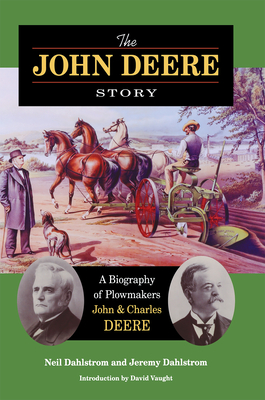
Today, John Deere is remembered--some say mistakenly--as the inventor of the steel plow. Who was this legendary man and how did he create the internationally renowned company that still bears his name? He began as a debt-stricken blacksmith who, fleeing debt in New England in the 1830s, set up shop in a little town on the Illinois frontier. There, in response to farmers' struggles, he designed a new plow that cut through the impervious prairie sod and lay open the rich, heavy soil for planting. The demand for his polished steel plow convinced him to specialize in farm implements.
In the decades before the Civil War, John Deere envisioned a company supplying midwestern farmers with reliable, affordable equipment. He used only high quality, imported steel and resisted pressure to raise prices. At the same time, he won respectful affection from his employees by working alongside them on the shop floor. Upon taking the helm in the 1860s, John's only surviving son, Charles, expanded the Moline factories to increase production, started branch houses in major midwestern cities to speed distribution, and began to transform the company into a modern corporation. The transformation didn't come without difficulties however: Charles found himself battling the Grange, facing threats of labor unions and strikes led by his own employees, and enduring patent suits and blatant thefts of product designs and advertising.







